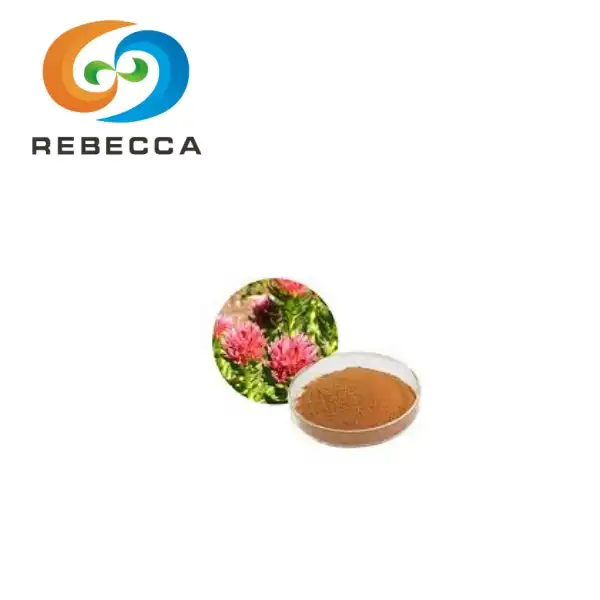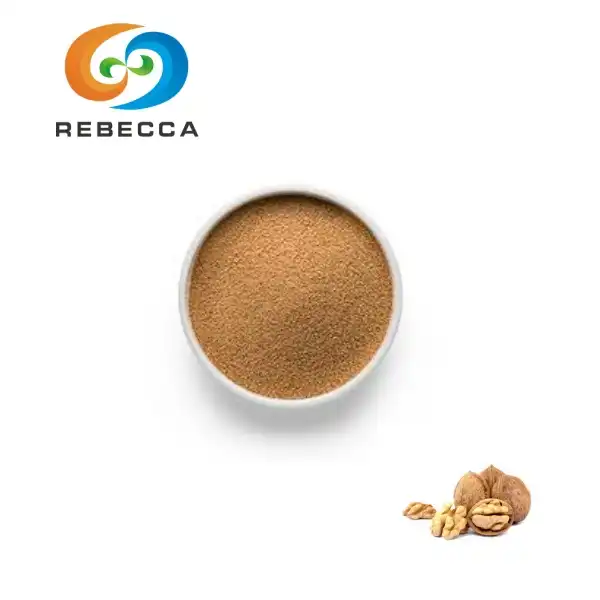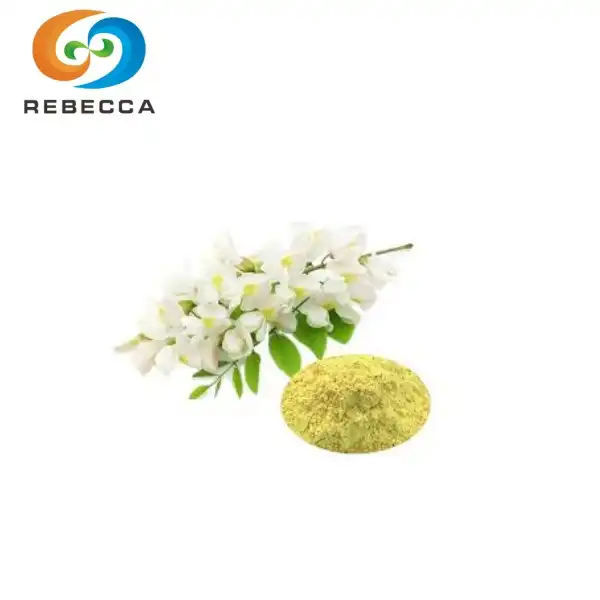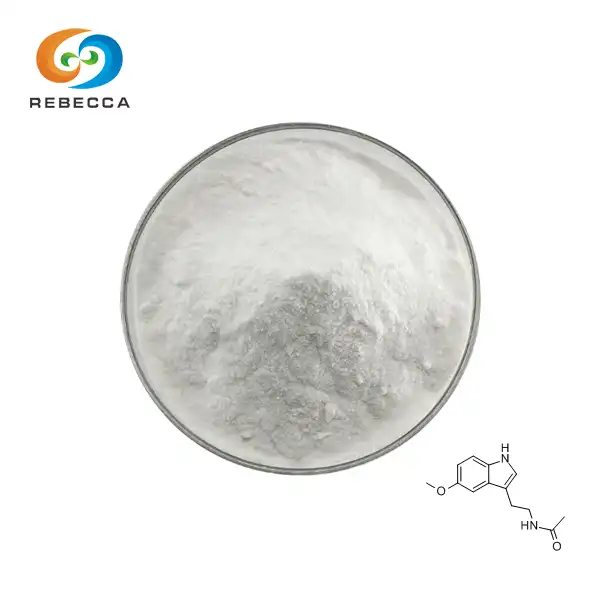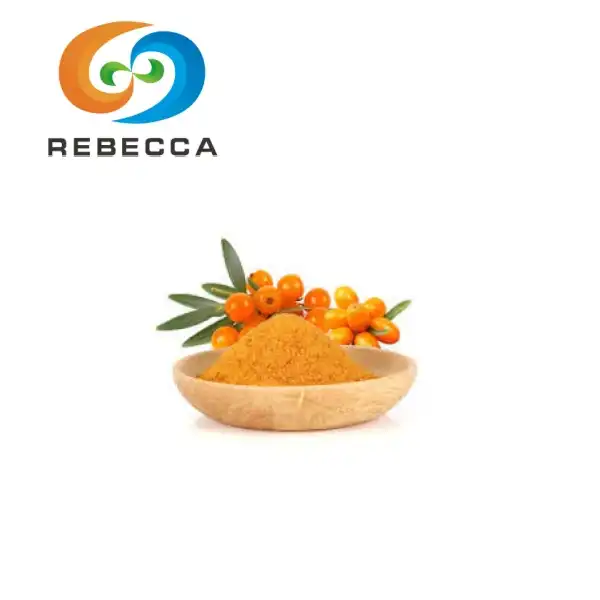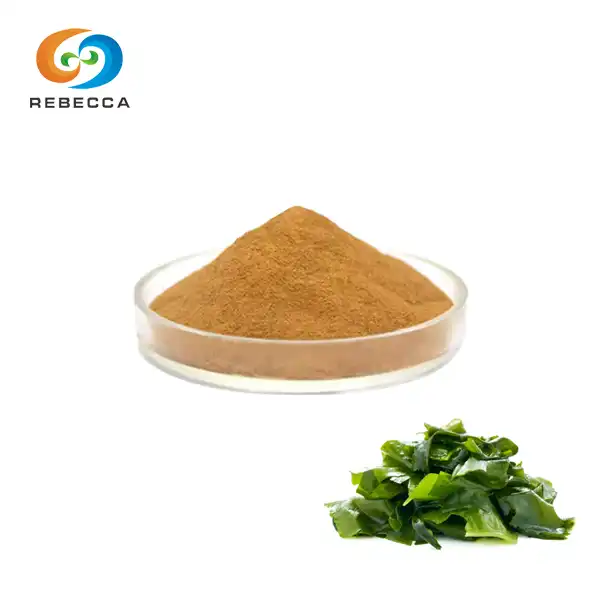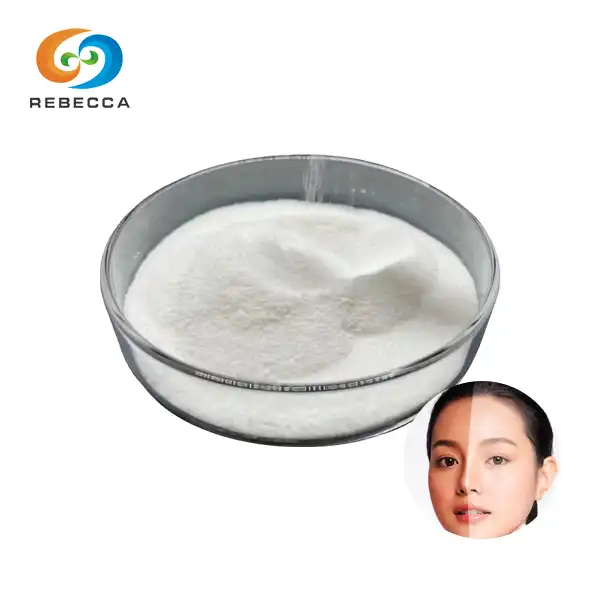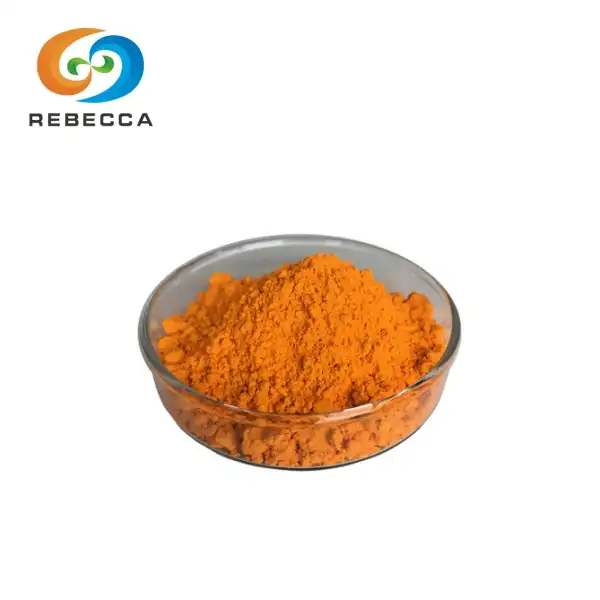What are the precautions for taking curcumin?
Curcumin, the active compound found in turmeric, has gained significant attention for its potential health benefits. As more people turn to natural supplements, organic curcumin extract powder has become increasingly popular. However, like any supplement, it's crucial to understand the proper usage and potential risks associated with curcumin intake. This comprehensive guide will explore the precautions you should take when considering curcumin supplementation.

How to Safely Use Organic Curcumin Extract Powder?
When incorporating organic curcumin extract powder into your wellness routine, it's essential to approach it with caution and awareness. Here are some key considerations for safe usage:
Consult with a Healthcare Professional
Before starting any new supplement regimen, it's paramount to consult with your healthcare provider. This is particularly important if you have pre-existing medical conditions or are taking medications. Your doctor can evaluate whether curcumin is appropriate for you and help determine the right dosage based on your individual health needs.
Choose High-Quality Products
When selecting organic curcumin extract powder, opt for reputable brands that prioritize quality and purity. Look for products that have been third-party tested and certified organic. This ensures you're getting a pure form of curcumin without harmful additives or contaminants.
Start with a Low Dose
It's advisable to begin with a lower dose of curcumin and gradually increase it over time. This approach allows your body to adjust and helps you monitor for any potential side effects. Pay attention to how your body responds and adjust the dosage accordingly.
Be Aware of Interactions
Curcumin can interact with certain medications, including blood thinners, antidepressants, and diabetes medications. If you're taking any prescription drugs, it's crucial to discuss potential interactions with your healthcare provider before adding curcumin to your regimen.
Consider Bioavailability
Curcumin is known for its poor bioavailability, meaning the body doesn't easily absorb it. To enhance absorption, consider taking curcumin with black pepper extract (piperine) or consuming it with a source of healthy fats. This can significantly improve its effectiveness.

Potential Side Effects of Curcumin Supplements
While curcumin is generally considered safe for most people, it's important to be aware of potential side effects, especially when taken in high doses or for extended periods:
Gastrointestinal Issues
Some individuals may experience digestive discomfort when taking curcumin supplements. This can include symptoms such as:
- Nausea
- Diarrhea
- Stomach upset
- Bloating
If you experience persistent gastrointestinal issues, consider reducing your dosage or discontinuing use and consulting with your healthcare provider.
Headaches and Dizziness
In some cases, high doses of curcumin may lead to headaches or dizziness. If you notice these symptoms, it's advisable to lower your intake and monitor your body's response.
Skin Reactions
Although rare, some individuals may develop skin rashes or irritation when taking curcumin supplements. If you notice any unusual skin changes, discontinue use and seek medical advice.
Increased Bleeding Risk
Curcumin has blood-thinning properties, which can be beneficial for some but may increase the risk of bleeding in others. This is particularly important for individuals taking blood-thinning medications or those with bleeding disorders.
Iron Absorption Interference
High doses of curcumin may interfere with iron absorption. If you have iron-deficiency anemia or are at risk for it, consult with your healthcare provider about the appropriate timing and dosage of curcumin supplementation.

Dosage Guidelines for Organic Curcumin Intake
Determining the optimal dosage of organic curcumin extract powder can be challenging, as it can vary based on individual factors and health goals. However, here are some general guidelines to consider:
Standard Dosage Range
The typical dosage range for curcumin supplements is between 500 mg to 2,000 mg per day. However, it's crucial to start with a lower dose and gradually increase it while monitoring your body's response.
Divided Doses
For better absorption and to minimize potential side effects, it's often recommended to divide the daily dose into two or three smaller doses taken throughout the day. This approach can help maintain a more consistent level of curcumin in your system.
Duration of Use
The appropriate duration of curcumin supplementation can vary depending on your health goals and individual circumstances. Short-term use (4-8 weeks) is generally considered safe for most people. For long-term use, it's essential to consult with a healthcare professional to assess the benefits and potential risks.
Adjusting for Specific Conditions
If you're considering curcumin for a specific health condition, the dosage may need to be adjusted. For example:
- For osteoarthritis: Studies have used doses ranging from 500 mg to 2,000 mg daily.
- For inflammatory conditions: Higher doses of 1,500 mg to 2,000 mg daily have been studied.
- For general health maintenance: Lower doses of 500 mg to 1,000 mg daily may be sufficient.
Remember, these are general guidelines, and individual needs may vary. Always consult with a healthcare professional to determine the most appropriate dosage for your specific situation.
Cycling Curcumin Intake
Some experts suggest cycling curcumin supplementation to prevent potential tolerance or long-term side effects. This might involve taking curcumin for 4-6 weeks, followed by a 1-2 week break before resuming. However, more research is needed to determine the optimal cycling strategy.
Combining with Other Supplements
When incorporating curcumin into a broader supplement regimen, be mindful of potential interactions. Some supplements, like omega-3 fatty acids, may complement curcumin's effects, while others might interfere with its absorption or efficacy. Discuss your complete supplement routine with a healthcare provider to ensure safe and effective use.

Conclusion
In conclusion, organic curcumin extract powder offers promising health benefits, but it's crucial to approach its use with caution and awareness. By following these precautions and guidelines, you can maximize the potential benefits while minimizing risks. Remember, individual responses to curcumin can vary, so it's essential to listen to your body and work closely with healthcare professionals to tailor your supplementation strategy. If you have additional questions about organic curcumin extract powder or other natural supplements, don't hesitate to reach out to experts in the field. For more information, you can contact us at information@sxrebecca.com.
References
1. Hewlings, S. J., & Kalman, D. S. (2017). Curcumin: A Review of Its Effects on Human Health. Foods, 6(10), 92.
2. Gupta, S. C., Patchva, S., & Aggarwal, B. B. (2013). Therapeutic Roles of Curcumin: Lessons Learned from Clinical Trials. The AAPS Journal, 15(1), 195-218.
3. Daily, J. W., Yang, M., & Park, S. (2016). Efficacy of Turmeric Extracts and Curcumin for Alleviating the Symptoms of Joint Arthritis: A Systematic Review and Meta-Analysis of Randomized Clinical Trials. Journal of Medicinal Food, 19(8), 717-729.
4. Prasad, S., Tyagi, A. K., & Aggarwal, B. B. (2014). Recent Developments in Delivery, Bioavailability, Absorption and Metabolism of Curcumin: the Golden Pigment from Golden Spice. Cancer Research and Treatment, 46(1), 2-18.
5. Soleimani, V., Sahebkar, A., & Hosseinzadeh, H. (2018). Turmeric (Curcuma longa) and its major constituent (curcumin) as nontoxic and safe substances: Review. Phytotherapy Research, 32(6), 985-995.
_1730691017423.webp)










